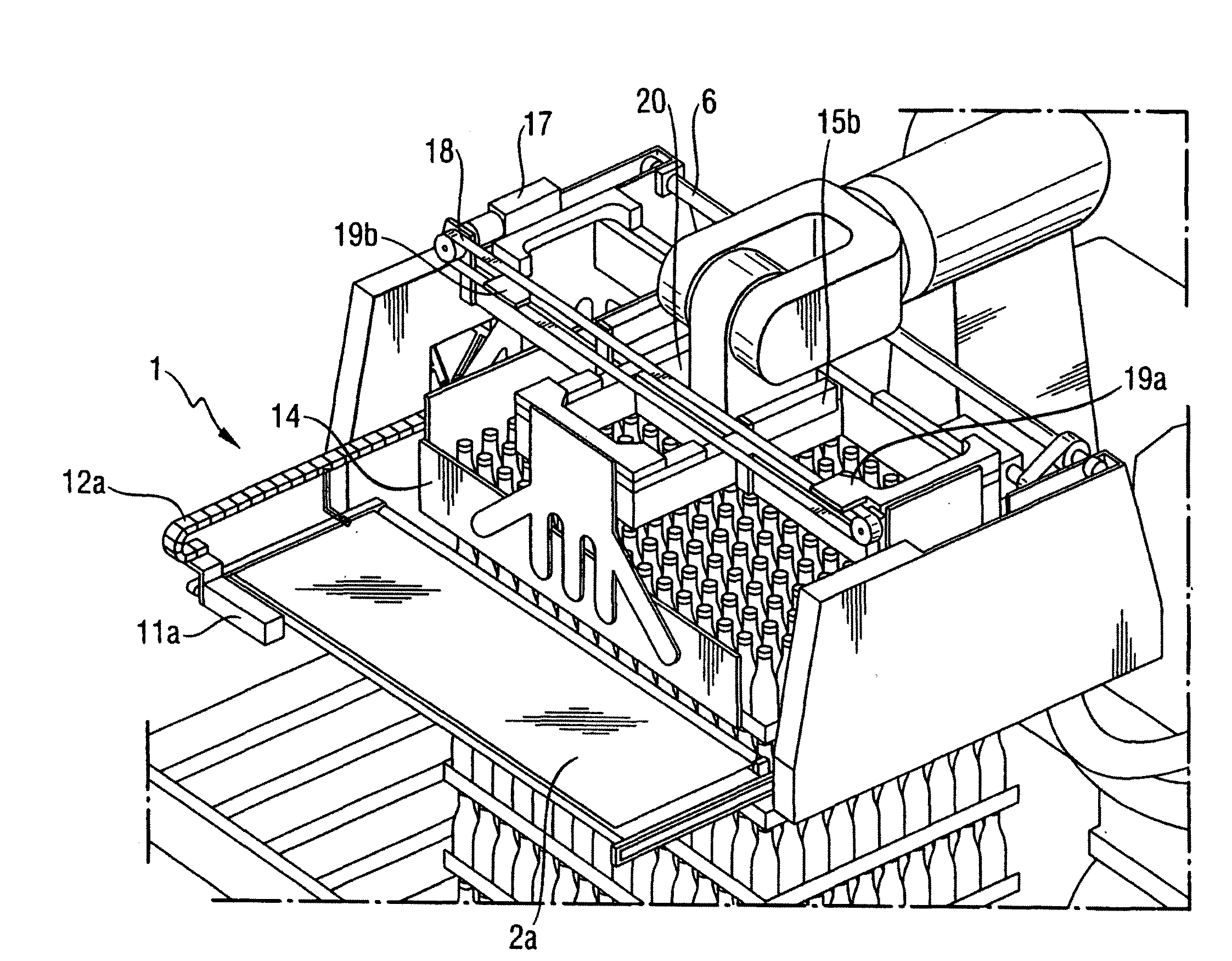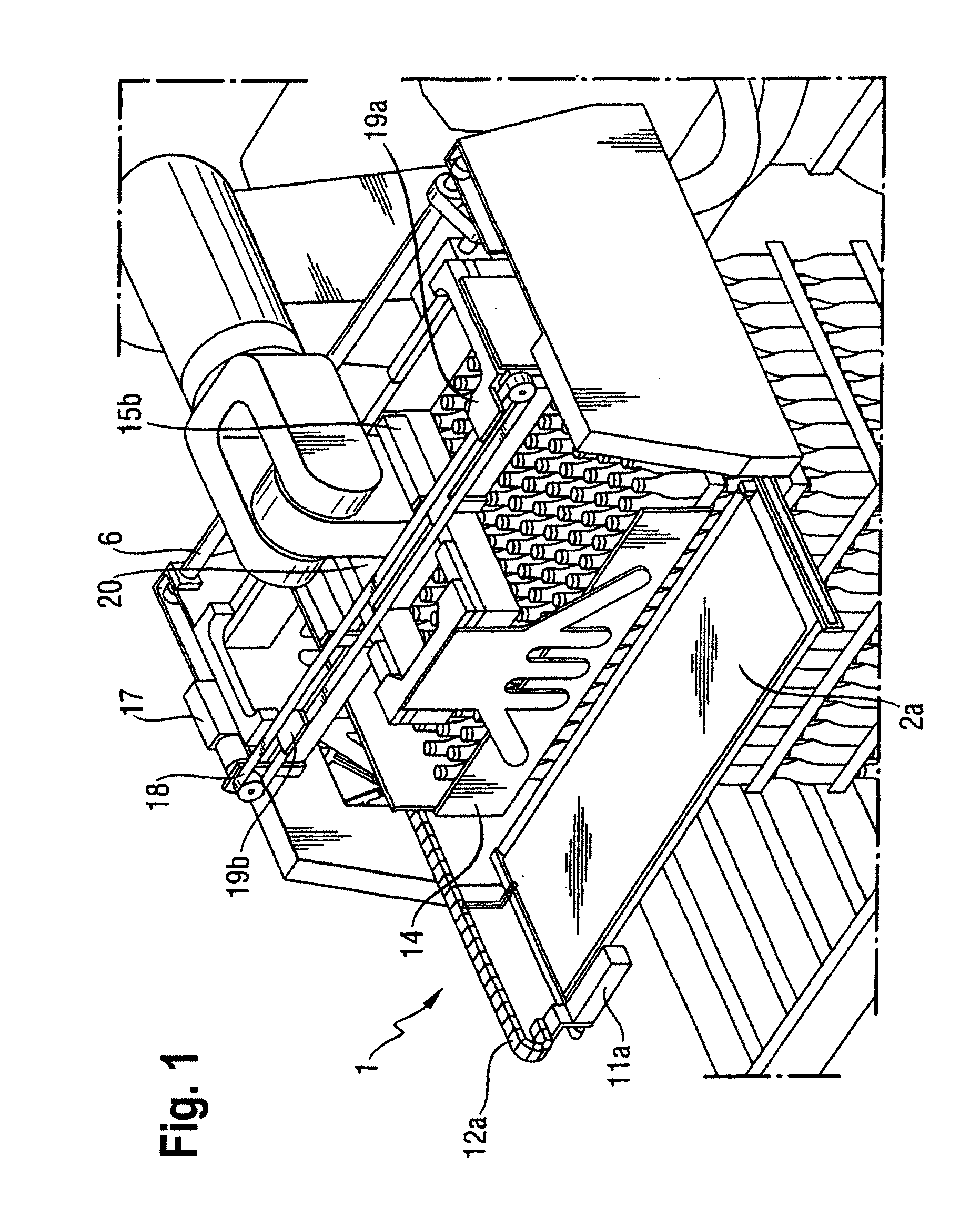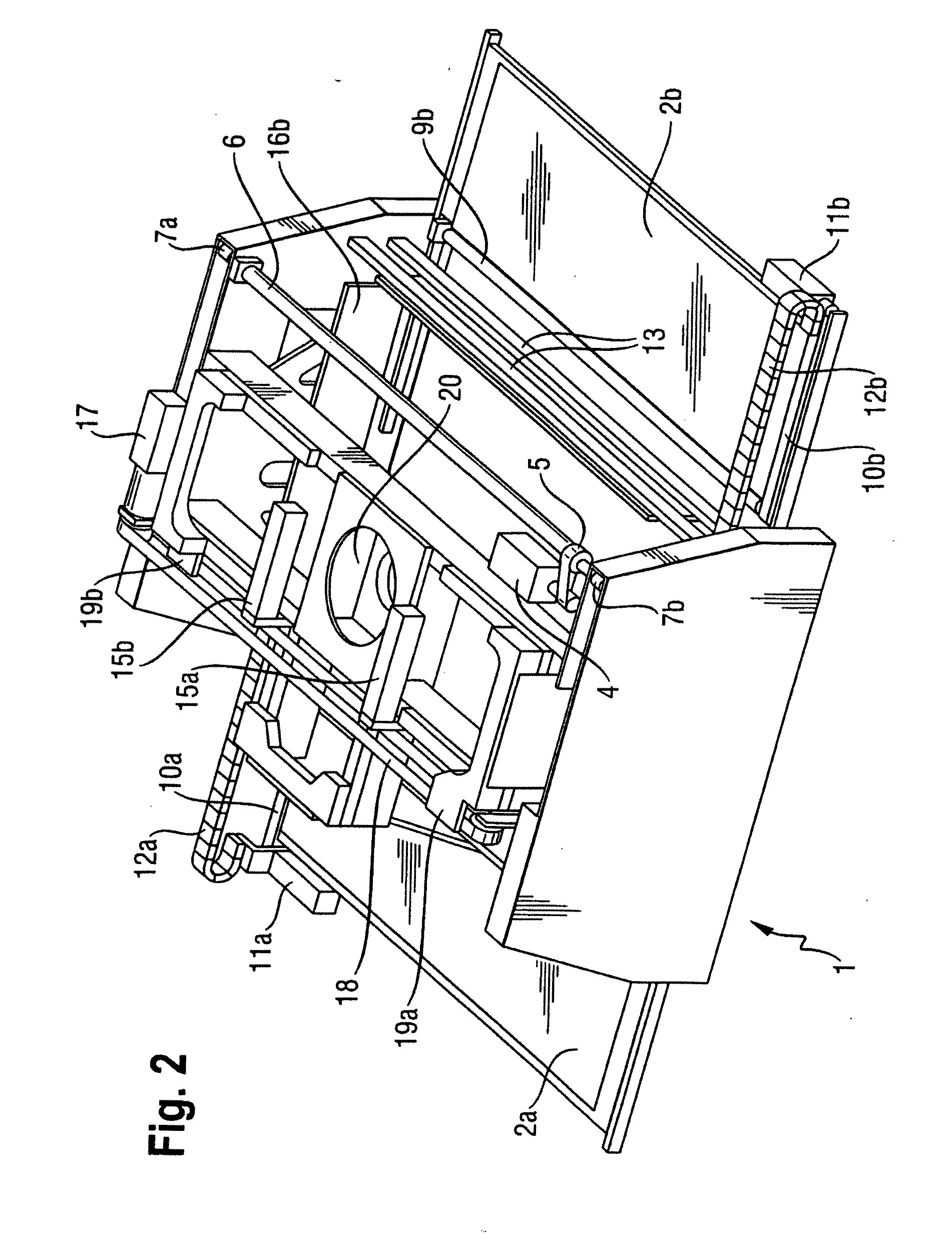Device and method for depalletizing stacked bundles
a technology for stacked bundles and devices, applied in the direction of manipulators, pile separation, applications, etc., can solve the problems of complete operation failure of a known depalletizing tool, depalletizing process can be sensitively disrupted or, respectively, hindered, etc., and achieves simple positioning of the hold-down clamp, high operating safety, and high contact pressure force
- Summary
- Abstract
- Description
- Claims
- Application Information
AI Technical Summary
Benefits of technology
Problems solved by technology
Method used
Image
Examples
Embodiment Construction
[0035]FIG. 1 is an overview representation in which a device according for depalletizing according to the invention is connected with a robot that encompasses the uppermost layer of a container stack located on a pallet in order to lift this from the remaining stack.
[0036]The device for depalletizing according to the invention is described in detail in the following using additional Figures.
[0037]The depalletizing tool according to the invention possesses a base frame 1 on whose underside two support base parts 2a and 2b (here as support base halves) can be moved towards and away from one another by means of slide bearings 3a, 3b. For an automatic movement of the support base parts 2a and 2b, a common electrically drivable motor 4 is provided that drives (via a first synchronous belt 5) a distributor shaft 6 which drives a right drive belt 7a and a left drive belt 7b. The drive belts 7a and 7b are for their part connected with a carrier 8a and 8b that are in turn respectively connec...
PUM
 Login to View More
Login to View More Abstract
Description
Claims
Application Information
 Login to View More
Login to View More - R&D
- Intellectual Property
- Life Sciences
- Materials
- Tech Scout
- Unparalleled Data Quality
- Higher Quality Content
- 60% Fewer Hallucinations
Browse by: Latest US Patents, China's latest patents, Technical Efficacy Thesaurus, Application Domain, Technology Topic, Popular Technical Reports.
© 2025 PatSnap. All rights reserved.Legal|Privacy policy|Modern Slavery Act Transparency Statement|Sitemap|About US| Contact US: help@patsnap.com



